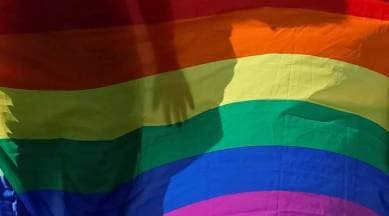Stay updated with the latest - Click here to follow us on Instagram
Centre to HC: Marriage is between biological man and biological woman
At least five petitions are pending before the court seeking legalisation of same-sex marriages.

The law is settled that marriage is a term associated with a biological man and a biological woman, the Centre argued Monday before the Delhi High Court. After a brief hearing, the court listed petitions seeking recognition and registration of same-sex marriages under existing laws for a final hearing on November 30.
At least five petitions are pending before the court seeking legalisation of same-sex marriages under the Hindu Marriage Act, Special Marriage Act (SMA), Foreign Marriage Act (FMA) and a declaration that the right to legal recognition of same-sex marriage is a fundamental right under Articles 14, 15, 19 and 21 of the Constitution, irrespective of a person’s gender, sex or sexual orientation.
At the outset of Monday’s hearing, advocate Karuna Nundy, who represents one of the couples in the case, submitted that pleadings are not complete as a counter-affidavit has not been filed in her matter which has a distinct prayer.
Solicitor General of India Tushar Mehta submitted that pleadings have been filed and only a question of law is involved.
“Everything would depend on whether your lordship recognises the submission on the question of marriage and registration of marriage, whether it has to be between a biological man and a biological woman. The entire matter would depend on that,” submitted Mehta.
“The law as it stands, either with or without Navtej Singh Johar case… the law is settled, the personal laws are settled … marriage which is contemplated is between a biological man and biological woman,” Mehta submitted.
In February, the Centre, seeking dismissal of the petitions, had in a written reply before the court argued that a marriage in India necessarily depends upon “age-old customs, rituals, practices, cultural ethos and societal values” and that living together as partners and having a sexual relationship by same-sex individuals is “not comparable” with the “Indian family unit concept” of a husband, wife and children. It had also said that there exists a “legitimate state interest” in limiting the recognition of marriage to persons of opposite sexes only.
The Centre had said that despite the decriminalisation of IPC Section 377, the petitioners cannot claim a fundamental right for same-sex marriage under the laws of the country. It further said that the Supreme Court in 2018 decriminalised “a particular human behaviour” which was a penal offence under IPC Section 377 but the “said judgment was neither intended to, nor did in fact, legitimise the human conduct in question”.
In one of the petitions, psychiatrist Dr Kavita Arora and therapist Ankita Khanna have sought enforcement of the fundamental right of choice of partner, after their application for solemnisation of marriage under the Special Marriage Act was rejected by a marriage officer in Delhi’s Kalkaji on the ground that they are a same-sex couple.
The second petition, filed by OCI cardholder Parag Vijay Mehta and Indian citizen Vaibhav Jain, who married in Washington in 2017, also seeks direction for registration of marriage under the Foreign Marriage Act after they were denied the same by the Consulate General of India at New York.
The PIL seeking the recognition of same-sex marriages under the Hindu Marriage Act has been filed by Abhijit Iyer Mitra and three others. A fourth petition — by a lawyer working with a leading international law firm in the US, an artificial intelligence scientist in California, an economics consultant, and a business development manager – also seeks “non-discriminatory access” to the Special Marriage Act for LGBTQ+ individuals.
The fifth petition has been filed by a married same-sex couple Joydeep Sengupta and Russel Blaine Stephens along with queer rights activist Mario Leslie Dpenha.